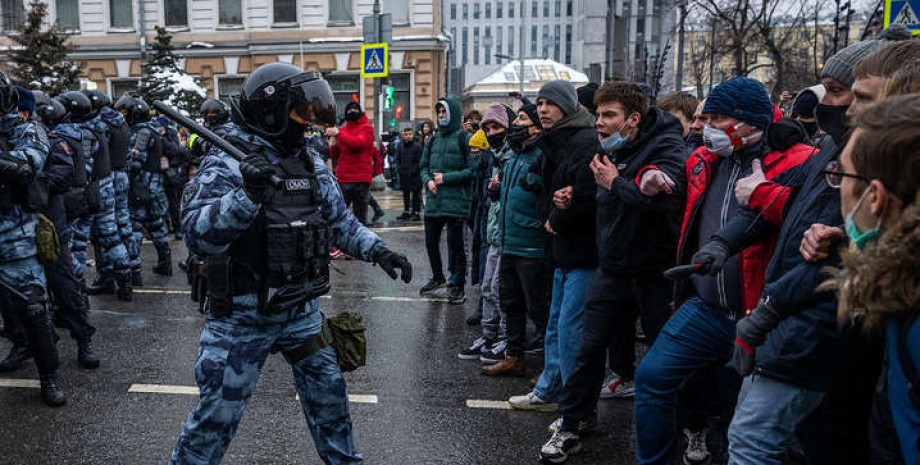
But they are inclined to the fact that the collapse of the Russian Federation, when it happens, will not pass smoothly and the fragmented state will be a serious threat to neighbors. The Hill writes about it. Janusz Bugaisky from the Jamestown Foundation notes that becoming a "minor state", which is under rigid international sanctions and is deprived of its resource base in Siberia, "Russia will have greatly limited opportunities to attack neighbors.
" In his view, the Eastern Front of NATO will become safer; Whereas Ukraine, Georgia and Moldova will return their occupied territories and submit integration into the European Union and NATO without fear of Russia's reaction. The countries of Central Asia also feel more free. According to Bugay, the territory, limited by St. Petersburg, Moscow and Nizhny Novgorod, will eventually remain from Russia.
It will cease to be a large geopolitical player and, therefore, a threat to any of its neighbors, especially if the latter unite with the West. And even if the remaining Russia will retain all its nuclear weapons, it will not be able to use it, except for the extremely unlikely case of a coordinated attack of its neighbors. Washington Post Viewer David Ignatius holds a more gloomy point of view. In his opinion, "a fragmented, demoralized Russia will become the devil's playground.
" "Inner mess in Russia is a serious dilemma for Putin, but it is also very dangerous for the West," Ignatius notes. Tatiana from the Carnegie Foundation occupies the middle ground. In her opinion, the Kremlin will fight simultaneously with the crisis of the Putin leadership, which deepens, with a growing lack of political accountability, increasingly ineffective responses of power to new challenges, increased fragmentation among elites and dissatisfaction with society.
On the other hand, although the world will have to deal with a more dangerous and unpredictable Russia, it is likely that this can lead to a more pragmatic approach to war against Ukraine. Analysts say that Putin has been trapped and possibly prone to desperate measures. Former President and Prime Minister of Russia Dmitry Medvedev, as he implies from his hung messages, maybe crazy-and not alone in his madness.
Russian elites are fragmented and separated, they lack a coherent and consistent vision of their country's future; No one knows what to do with a catastrophic war with Ukraine. As the state says, "these events turn Russia into a much less cohesive formation, rich in internal arguments and conflicts, more variable and less predictable.
" But why is the internal disorder and unpredictability of the Russian Federation for the West-or, if it has gone, Ukraine or any other neighbor of Russia? Russia has been in confusion for 30 years. However, the years of Boris Yeltsin in the 1990s were particularly difficult, but Putin failed to build a cohesive society and a functioning economy. A repressed society may be more pliable, but it is not cohesive and stable.
Speaking of Putin, analysts have always noted his ability to beat and surprise the West. And it is unclear whether this unpredictability will increase if Russia breaks down. Or rather, as Ignatius and Stanva, Russia, will become more repressive at home, that Putin will become more desperate that the war will remain shaking for Russia and the liberation struggle for Ukraine, and the Putin authorities and the regime and the regime will ride for oblivion.
Neighbors of the Russian Federation and the West have lived near the extremely unstable and unpredictable Russia for three decades. Whatever the reasons for this state of affairs, the likelihood that Russia will suddenly get rid of instability and unpredictability and stop slipping to disintegration, almost zero. According to Bugai, Ignatius and Stava, instability and unpredictability are a product of Russia's internal affairs.










All rights reserved IN-Ukraine.info - 2022